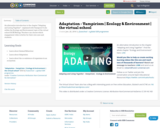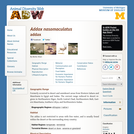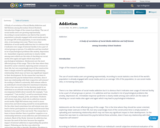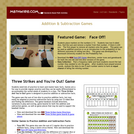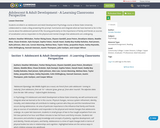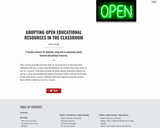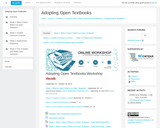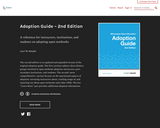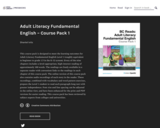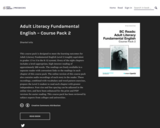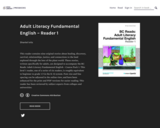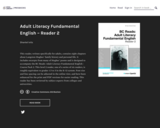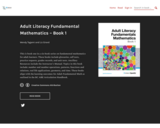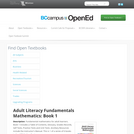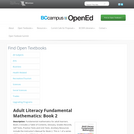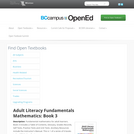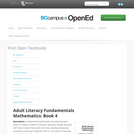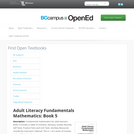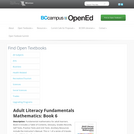A Study of correlation of Social Media Addiction and Self Esteem
among Secondary School Students
Introduction
Origin of the research problem:
The use of social media users are growing exponentially. According to social statistics one third of the world’s population is already engaged with social media and on an average 10% of the population, to use social media sites, is increasing every year.
There is no clear definition of social media addiction but it is obvious that it indicates over usage of internet facility to be a part of virtual groups or person. It is addictive and has resulted in lot of psychological problems like anxiety, depression etc. Immediate response syndrome is clearly visible among users which are the state of checking our social media sites again and again which may lead to psychological imbalance.
Adolescents are the most affected group of this usage. This is the time where they should be career oriented, exploring newer avenues in their life, but very surprisingly most of the constructive time is simply wasted in uploading and maintaining relationship which may not have any significant impact in their development. So the researcher was keen to understand the psyche behind these activities, does it have any relationship with their respective self esteem?
According to Oxford’s university, Self-esteem reflects an individual's overall subjective emotional evaluation of his or her own worth. It is the decision made by an individual as an attitude towards the self. Self-esteem encompasses beliefs about oneself, (for example, "I am competent", "I am worthy"), as well as emotional states, such as triumph, despair, pride, and shame.
Students self esteem may play a dual role in addiction towards social media. High Self esteem may result to more interaction and showcasing oneself in social platforms. On the other hand sometimes low self esteem may also lead to better participation in virtual world because they hesitate to be a part of the real world. The researcher is keen to know whether there is positive/ negative or no relationship between social addiction and self esteem of students.
Need of the Study:
Internet de-addiction has become the need of the hour because the negative impact of internet addiction is superseding the positive impact. Following are the few cons which the researcher was able to identify:
Phubbing: Phubbing is the practice of ignoring one's companion or companions in order to pay attention to one's phone or other mobile device. This is a new word added to the dictionary because of the traits seen in people who overuses mobile devices. So the use of technology instead of making our life easier has in fact created a barrier between humans only.
Breakdown of real communication: If the addiction of internet is very large then the person tries to spend most of their time in virtual communication. This breaks the interest of having real communication.
Immediate response syndrome/ instant need of immediate gratification: Once a message is sent or picture is posted, have you realized how many times you look back into your mobile to check the trailing messages or how many likes you have got or even how many social friends have even gone through it?
Inability to focus on the present: Adolescents are so busy sharing whatever they do that they have lost to live in the moment for the sake of sharing the moment.
Sleep deprivation: Internet has opened up such vast avenues for the young generation that they are totally absorbed in variety of internet related activities. It is to such an extent that they cannot balance their life compromising upon their sleep habits. Sleep deprivation is further leading to restlessness, anxiety and other health related issues.
Lack of hobby: Gone are the days when young generation would collect rare historical objects as their hobby, go out for nature trails, distress them by engaging in games and sports
Attention span / Memory loss: We have become slaves in the hand of technology. It has overpowered our capabilities to such an extent that we have lost believing in our memory. We have become so dependent on technology that for every small thing instead of using our brains we click to find out information.
Lack of language comprehension: Too many short forms used in messages have resulted in lack of incorrect usage of language.
Health related issues: It has resulted in the rise of 'neurasthenia' ('tired nerves') because of overuse of mobile devices.
Review of related literature:
Kanoh, Hiroko (2016) analyzed trends of social media and self-esteem by the Rosenberg Scale. The spread of SNS has changed communications between people to a great extent. For them it is a place their hearts can rely on and where they can hang out, a place for self-approval, for self-expression and a place where the other person listens to their dissatisfaction and discontent. At the beginning people are interested in knowing what everyone is doing, so they check SNS every day. However, they feel gradually tired. Immediate response syndrome refers to the feeling of having to check SNS sites and being is a state of psychological imbalance. Some have a loss of self-esteem in the SNS communication. So the researcher analyzed the relationship of social media use and the self-esteem. As results, the high self-efficacy group prefers both Facebook and LINE while the low self-efficacy group tends to use Twitter.
Kircaburun, Kagan (2016) studied Self-Esteem, Daily Internet Use and Social Media Addiction as Predictors of Depression among Turkish Adolescents. In this study, direct and indirect effects of self-esteem, daily internet use and social media addiction to depression levels of adolescents have been investigated by testing a model. This descriptive study was conducted with 1130 students aged between 12 and 18 who are enrolled at different schools in southern region of Aegean. In order to collect data, "Children's Depression Inventory", "Rosenberg Self-esteem Scale" and "Social Media Addiction Scale" have been used. In order to test the hypotheses Pearson's correlation and structural equation modeling were performed. The findings revealed that self-esteem and social media addiction predict 20% of the daily internet use. Furthermore, while depression was associated with self-esteem and daily internet use directly, social media addiction was affecting depression indirectly. Tested model was able to predict 28% of the depression among adolescents.
Tas, Ibrahim (2017) examined the relationship of Internet addiction and gaming addiction with school engagement and effects of Internet addiction and gaming addiction on school engagement. The research was conducted with 365 students (140, 38.4%, males; 225, 61.6%, females) studying at an Anatolian high school in Gaziantep province. Personal Information Form, Scale of Internet Usage Addiction, Gaming Addiction Scale for Adolescents and School Engagement Scale for Children and Adolescents (High School Form) were utilized as data collection tools. The data obtained were analyzed with correlation and multiple regression analysis. A weak negative relationship was found between Internet addiction and school engagement. No relationship was found between gaming addiction and school engagement. It was also concluded that Internet addiction is a significant predictor of school engagement and gaming addiction does not predict school engagement significantly.
Title of the study: A Study of correlation of Social Media Addiction and Self Esteem
among Secondary School Students
Objectives:
To find out correlation between social media addiction and self esteem among secondary school students
Hypothesis:
There is no relationship between social media addiction and self esteem among secondary school students
Methodology & Plan of Work:
The present study is descriptive survey method which deals with description, analysis and interpretation of existing phenomenon.
The sample for the study is 100 secondary school students of greater Mumbai.
Tools:
Rosenberg Social Media Addiction Scale
Self esteem Scale
Findings:
TABLE 1
Relevant Statistics of the Relationship of Social Media Addiction and Self esteem
Variables Pearson Correlation Significant
Social media addiction -0.1 Not significant
Self Esteem
Interpretation and Discussion:
The correlation value is -0.1 which is not significant. This indicates that self esteem does not play a significant role in social media addiction.
Students with high self esteem wants to be connected with the world because they want to share their confidence, happiness with the outer world. High self esteem students loves experimenting which may increase the use of social media because they want to explore new things every day. So this enhanced initiative may be a cause of getting addicted to social media more and more.
On the other hand even if the students have low self esteem, they hesitate to communicate in real world. They may lack self confidence, be in their own shell, and do not confront with real people and real incidences. These are the set of students who then want to go to their comfort zone and engage themselves in virtual media.
Significance of the study:
The study will be significant for the following members of the society:
Students: It will be an eye opener to those students who just waste their time, energy and resources to such a virtual world which does not have any significant impact in their future. Getting addicted to social media have negative impact on health and wellbeing.
Teacher: Teacher will realize that their roles are now not limited to only teaching learning process; they are guide and counselors to students. They need to engage in more and more constructive activities which will make the students realize the importance of living life with a purpose instead of just getting carried away with addiction.
Parents: Social media addiction leads to many psychological problems too like anxiety, depression, loneliness, Attention Deficit Hyperactivity Disorder and addiction. It has also led to phubbing i.e. snub contact with social life. So as parents it’s important to first identify whether the child is addicted, and if so how to help the child to come out of this.
Curriculum Framers: Textbooks should include theme based lessons on negative impact of addiction of social media sites, how to balance our self esteem with our day to day dealings etc
Conclusion:
The social media sites is highlighting only the best day, the best vacation the best party, the best dress and so on and so forth. The real life has lot more than this but feeds from peers and other social friends reflects only the good part of it. If the child/ student are not matured it may cause distress because they will be unable to relate it with their practical life.
So we conclude that students, whether they have high self esteem or low self esteem, are simply getting dragged to a darker world. The idea is not abstinence but have better control. In the connected world we live in, it is simply not feasible to prohibit someone from accessing all smart devices. But it has become a necessity to have proper check points to monitor their internet usage.
Baby steps to a digital detox:
We have to accept the fact that internet addiction has become a menace in today’s generation millennial. The reason we keep checking our social media is to keep up with everyone and pace with the ongoing trends. We tend to compare our real lives with others social media life. We need to realize that the entire feed portrayed by a person is a mere highlight of their lives and not their lives as a whole. It is filtered. It is unfair for our own selves to have this habit, we realize that the feeling of missing out (FOMO) while we see others pictures is just an illusion it will help us to get over constantly checking our social media pages. So to combat all these problems, following are few baby steps to a digital detox :
1) Turn off notifications: The continuous pings in the mobile distract us to do any productive work. It is really hard to resist the siren as we always think it is always important. Therefore turn off notifications of some apps which are not very useful.
2) Assign time limits for social media sites: It is tough to completely delete social media at once, it is better to have specific time allotted. This means you can keep track of the hours you spent on social media, this also means you wouldn’t constantly be checking your phones.
3) Choose your friends and followers: Although socializing is good, sometimes it gets out of hand with more friends and followers and it can be pretty time consuming.
4) Replace social media time with outdoor activities: You can take your mind off social media by substituting that time by pursuing your hobbies or developing new ones.
5) Do not take your electronics to bed: Your bedroom should be a place of peace and tranquility. Reflect the activities which you have witnessed throughout the day and plan for tomorrow instead of hanging on social media sites or other electronics. The continuous signals sent by Wi-Fi disturb our mental being too.
6) Uninstall Social Media: This will eliminate the chance of getting distracted completely.
7) Look at the positive benefits of social media detox: Our brain is inclined to do activities which have reasoned to it. If you look at the benefits of the detox , we can have more focused life, better mental health, strong relationships and so on and so forth.
References
Kircaburun, Kagan(2016) Self-Esteem, Daily Internet Use and Social Media Addiction as Predictors of Depression among Turkish Adolescents. Retrieved on 14/07/2018 from https://www.eric.ed.gov/?q=social+media+self+esteem&id=EJ1112856
Kanoh, Hiroko (2016). Analysis of Usage Trends of Social Media and Self-Esteem by the Rosenberg Scale. Retrieved on 14/07/2018 from https://www.eric.ed.gov/?q=social+media+self+esteem&id=ED571615
Rosenberg, M. (1965). Society and the adolescent self-image. Princeton, NJ: Princeton
University Press.
Tas, Ibrahim (2017) Relationship between Internet Addiction, Gaming Addiction and School Engagement among Adolescents. Retrieved from https://eric.ed.gov/?q=internet+addiction&id=EJ1170124 on 30/08/2018
http://netaddiction.com/ebay-addiction/
https://www.lifewire.com/what-is-social-networking-addiction-2655246
https://www.washingtonpost.com/news/theworldpost/wp/2018/04/25/social-media-addiction/?noredirect=on&utm_term=.362576c693e9
https://www.more-selfesteem.com/whatisselfesteem.htm
